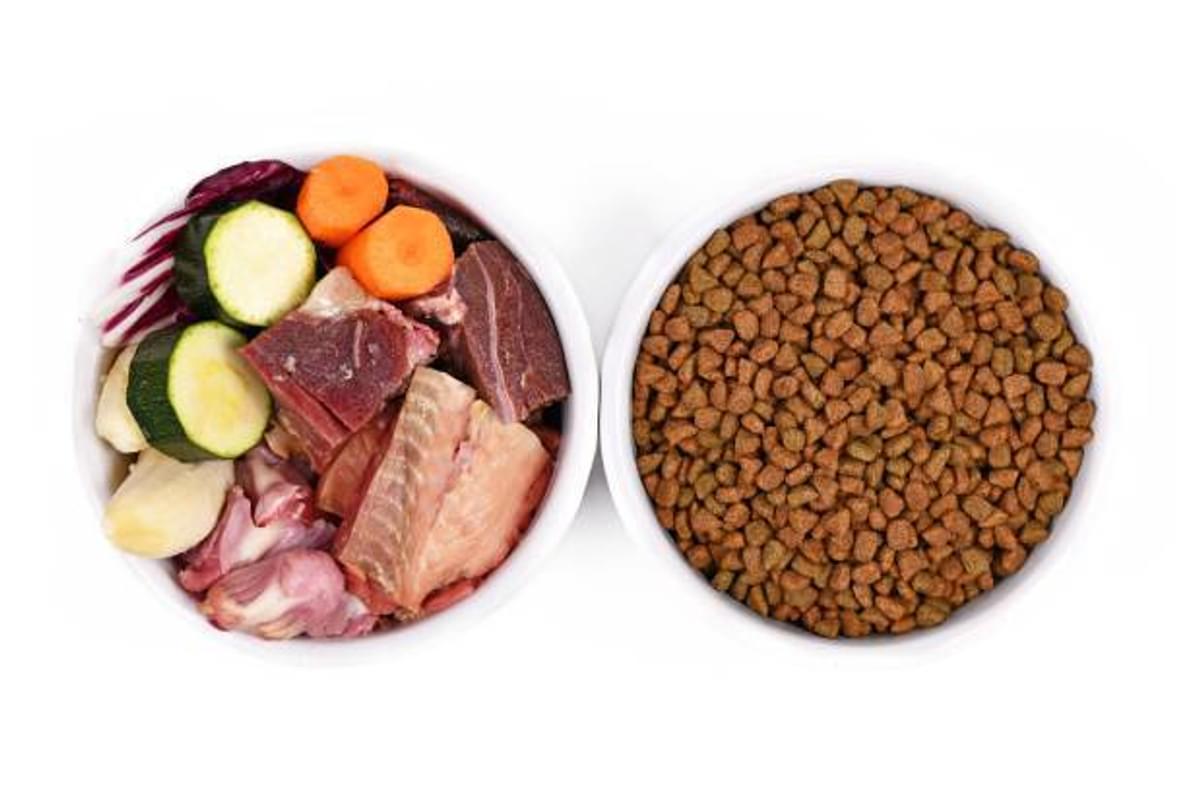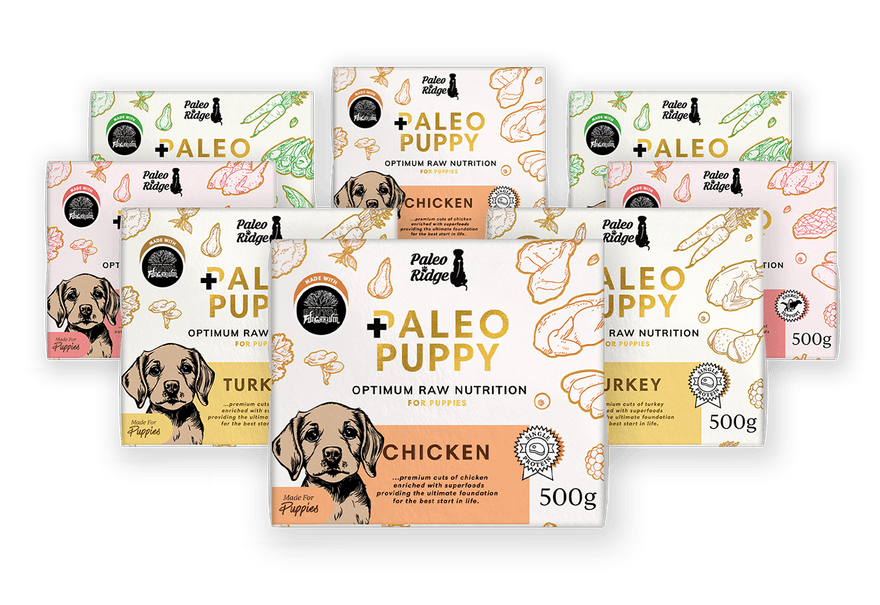Dogs like humans are made up of trillions of cells. Each cell is surrounded by a semi-permeable membrane called the Epigenome. It’s designed to allow only ‘healthy’ substances into each cell for positive genetic expression.
But in our modern world, we’re increasingly living in a ‘toxic’ soup, and cellular function can be damaged by toxins permeating into our cells. Creating a ‘body burden’ where cells become sick and inflamed, which leads to disease.
With the majority of dogs eating an ultra-processed, kibble diet, could the common denominator in the rise of obesity, cancer cases and disease be related to overly processed foods?
A dog’s digestive system is biologically and physiologically designed to eat meat. They’re carnivores, pre-programmed to thrive on a variety of animal fats and animal proteins. Unlike us humans, we’re omnivores, and rabbits are herbivores.
These classifications have become blurred in recent years, with claims that dogs have suddenly adapted to become omnivorous, and therefore able to digest proteins from plants, like we do.
Hence the proliferation of Vegan diet options and the perpetuation of industrially manufactured foods through a process called screw extrusion creating cremated sterile pellets that comprise little or no meat.
Yet 30 to 70 % of the ingredients commonly comprise: barley, rice, maize, white potato and sweet potato.
Whilst not only inappropriate for dogs, but the combination of additives, meat meal, rancid fats and a raft of artificial additives, colorants and synthetic supplements make for an unhealthy mix, especially for a carnivore!
Plus, the invasive processing called screw extrusion optimises extreme heat, which changes the molecular structure of the ingredients, creating Acrylamides – a known carcinogen to people.






